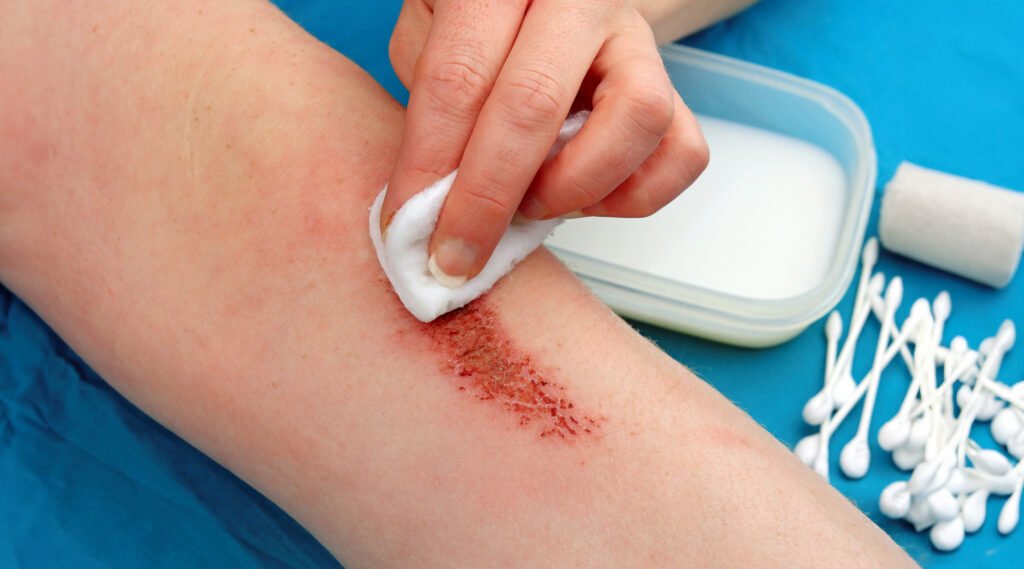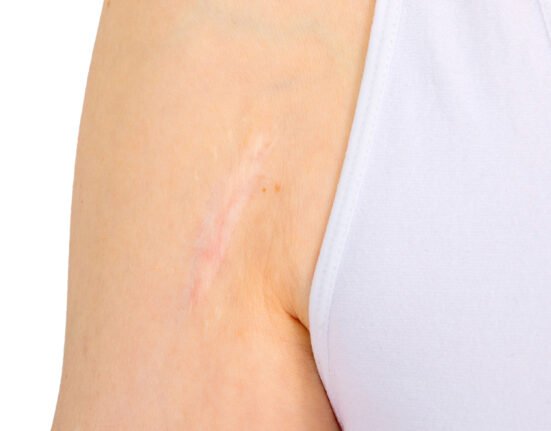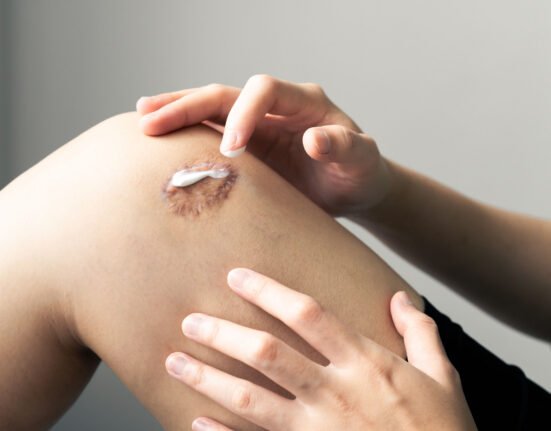Have you ever wondered why your wound won’t heal, even though you’ve been cleaning it every day and covering it with a bandage or plaster? Sometimes, it’s not because you’re doing something wrong. It’s because the wound is chronic.
Read more: https://gwswellness.com/health/why-you-shouldnt-ignore-a-wound/
Typically, wounds are treated by cleaning them regularly and covering them with a bandage or dressing. But if, after weeks of proper care, there’s still no sign of improvement, it could be a sign that your wound needs specialized treatment.

Medically, a wound is considered chronic if it doesn’t heal within 4 to 12 weeks, even with standard care. These types of wounds often occur due to underlying health issues such as poor circulation, diabetes, or a weakened immune system.
A typical example is a venous ulcer on the lower leg, which is an open sore resulting from impaired blood flow in the leg.
In such cases, regular wound care may not be enough. This is where wound care products like wund+™ can play a vital role.
If you need to clean your wound daily without damaging healthy cells, you can use wund+™ Wound Spray, which contains hypochlorous acid.
And to help fade scars after the wound has healed, there’s wund+™ Scar Gel, which contains Centella Reversa stem cells to improve skin appearance.
What Can Slow Down Wound Healing?
Several factors can make a wound slow to heal:
- Dead skin tissue (necrosis)
Dead tissue or debris can impede the healing process. Wounds require a clean environment so that healing cells can function effectively. - Infection
When bacteria enter an open wound, the body focuses on fighting the infection rather than healing, which slows down the process. - Persistent bleeding
A wound that keeps bleeding won’t close properly, as the edges remain open. - Pressure or friction (mechanical damage)
Immobile people — due to illness or old age — are at risk of pressure ulcers (bedsores). These wounds are difficult to heal because the skin is constantly subjected to pressure or friction. - Poor diet
A lack of proper nutrition can lead to deficiencies in essential nutrients, such as vitamin C, protein, and zinc, which are crucial for tissue repair. - Underlying medical conditions
Diseases such as diabetes, anemia, or vascular disorders can slow wound healing because they affect blood flow. A weakened immune system can also be a factor. - Aging
As we age, our body’s regeneration process slows down, including the healing of wounds. - Certain medications
Some medications, such as anti-inflammatory drugs (e.g., aspirin), can interfere with the immune response necessary for wound repair. - Smoking
Smoking reduces blood flow and oxygen supply to tissues, making wounds more challenging to heal. - Varicose veins
Poor blood circulation caused by varicose veins can lead to fragile skin and delayed wound healing. - Excessively dry wounds
Wounds that are too dry, especially if left open, can be more complex to heal. Skin and immune cells need a moist environment to function effectively.
In short, wounds that don’t heal properly aren’t always a result of poor care. With proper treatment and healthy lifestyle changes, wounds can heal more quickly, and complications can be avoided.
If your wound is worsening or not improving, consult a doctor.
References
Better Health. Accessed in 2025. Wounds – how to care for them
NCBI. Accessed in 2025. Chronic wounds: Learn More – What are the treatment options for chronic wounds?














Leave feedback about this